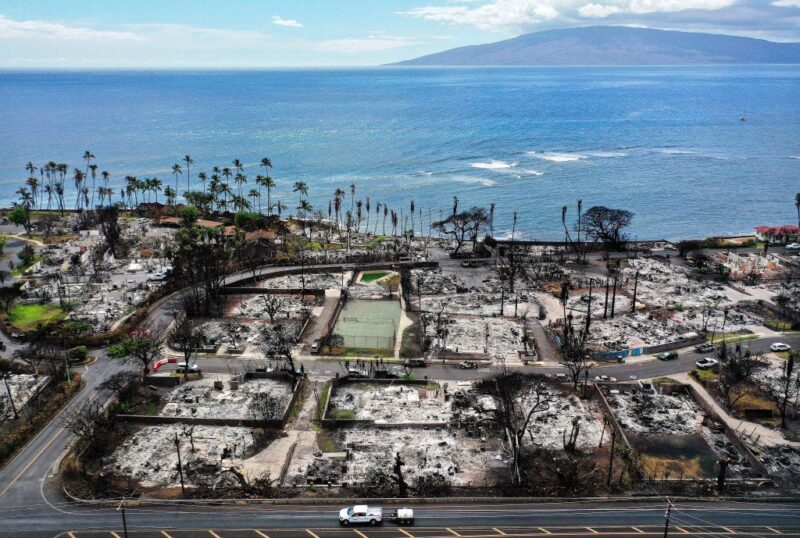- Anger over the Mar-a-Lago raid has led to a surge in disturbing posts on mainstream sites, experts say.
- Anti-government, pro-Trump posts are easily accessible on social media platforms like TikTok and Twitter.
- Experts say online extremists easily outrun the sites' monitoring.
A woman wearing a red, white, and blue beach hat faces the camera and begins speaking.
"Good morning, TikTok. Nothing funny about this post," she warns. Her voice quavering with emotion, she then promises, "I will go out in a blaze of glory" rather than let President Joe Biden invoke martial law (something he has not threatened to do) and come after "conservatives and people trying to save America."
"She's just in tears over this," extremism expert Wendy Via told Insider of the video, which was posted from a now-inactive account the day after the Mar-a-Lago raid.
"It was on TikTok," said Via, cofounder of the Global Project Against Hate and Extremism. "TikTok is the place, man."
So too is YouTube, and Twitter, and any number of mainstream platforms and websites where threatening, anti-government posts are now easily accessible, experts say.
These days, experts note, you don't have to venture into the unregulated, porn-laden corners of the internet — your 4Chans, 8Chans and openly-white-supremacist websites — to watch angry people flash assault weapons and talk about taking down the government.
In fact, much of the surge in hate speech and anti-government threats that experts are seeing in the wake of the Mar-a-Lago raid are being posted on mainstream platforms.
You can turn to TikTok and watch guys like @samadams593 pose with an assault rifle and say, "I seen what happened to Trump."
"Yeah. It's go time," he posted from the since-deactivated account the day after the Mar-a-Lago raid. "Everybody knows exactly what I'm talking about."
"What I think is particularly scary is the way that these folks are willing to show their guns on a TikTok video and say let's go," said Via.
Alex Friedfeld, an extremism expert with the Anti-Defamation League, said the Mar-a-Lago raid led some Americans to ready themselves for battle.
"You're seeing people interpreting the Mar-a-Lago search not as a legitimate legal process but as the first shots in a war by the federal government," Friedfeld said. "So consequently, you're seeing calls for people to arm up, to lock and load, and to be ready to use real bullets to defend themselves. It's all over the place."
Progressive political blogger Michelle Davis is tracking between 4,000 and 5,000 extremist TikTok accounts at any given time.
She saw hundreds of new, threatening TikTok posts each day in the wake of the FBI's August 8 raid of Donald Trump's compound, she said, and still more on Facebook, Twitter, and YouTube.
"I've seen posts responding to the Mar-a-Lago raid where they've specifically said all Donald Trump has to do is give the word and we're rocking and rolling," said Davis, who blogs about Texas politics on LivingBlueTX.com.
Extremist account holders just switch accounts as soon as TikTok deactivates them, said Davis, who often tweets out the most disturbing content, including the beach hat woman and the gun-on-bed guy.
"When TikTok realizes that they have hashtags that are being used for this type of stuff they'll ban the hashtag so you can't follow it," she said. "But these guys are always thinking up clever ways to get around that," by tweaking the hashtag.
Davis noted that accounts can attract thousands of views before they are taken down.
Extremists use posts on Twitter, YouTube, and Tiktok to direct viewers to sites where speech is darker and less-monitored, said Elizabeth Neumann, co-founder of Moonshot, a London-based agency that analyzes online extremism.
"They speak in memes or coded language so it's not obvious to the algorithm or the person who's monitoring," said Neumann, who served as an assistant secretary of counterterrorism and threat prevention at the Department of Homeland Security during the Trump administration.
"The language and memes morph and change pretty quickly," she said. "They learn and adapt to those moderation controls."
Neumann and other experts first noticed extremism moving into mainstream online spaces some five years ago.
The COVID-19 pandemic — with its risk, isolation, and uncertainty — supercharged the mainstreaming of extremism and conspiracy theories in 2020. There have also been spikes since then, most notably surrounding the Capitol siege in 2021.
"It would be hard to say that this particular moment is so new and different from what happened in 2020," Neumann said of the Mar-a-Lago backlash.
"That mainstreaming of extremism was already going on for a long time," she said.
"But 2020 was like this watershed moment of, wow, a lot of people in this country have decided to move away from fact, move away from reality, and instead choose to believe a random person on the internet over a doctor, or over an expert in elections," she said.
"The pandemic created this space for more and more people to have that cognitive opening for a complete dismissal of anyone in authority, or anybody with credentials to be able to explain things," she added.
Extremist groups see the Mar-a-Lago moment as an opportunity for recruitment, similar to how, during the pandemic, groups including the Proud Boys began recruiting among anti-vaxxers.
"There is an increase in mainstream audiences talking about things that extremists talk about all the time," Neumann said of the calls to violence and the spike in pro-Trump and anti-government conspiracy theories.
"The question is whether it will have a lasting effect, kind of the way COVID's disrupting effect sent people down those rabbit holes.
"Some eventually came back — but a lot of people are still down those rabbit holes. Is this moment going to push people over an edge — and they don't come back, and they just move into that extremism space permanently?
"It's hard to know if this is an ongoing trend that will have lasting ramifications, or if it's just a spike we see after an event, and then they all go on with their lives."










